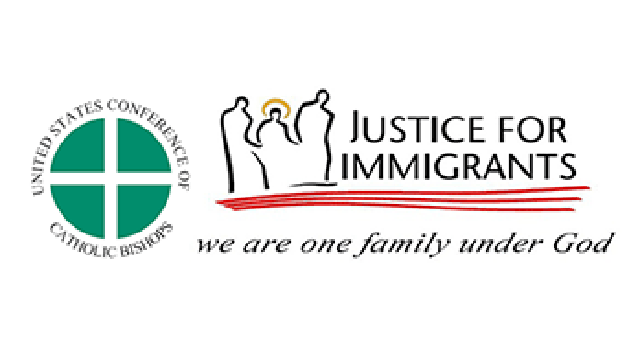By Jim Davis - Florida Catholic
MIAMI | From popes to bishops to the Bible itself, the Church has long demanded freedom for migrants, protection for the endangered and compassion for the suffering.
The United States Conference of Catholic Bishops has gathered a separate webpage for the church's social teachings on the rights of migrants, as well as resources parish activities.
USCCB also has a whole webpage on the matter, titled "Justice for Immigrants." The page covers everything from asylum to trafficking to migration news to unaccompanied children to the coronavirus pandemic.

Back in 2000, the bishops released a study called Welcoming the Stranger. The document denounces the "drawn-out asylum procedures" and "humiliating incarceration under deplorable circumstances" that immigrants endured back then — conditions that many refugees still face two decades later.
"We recognize that nations have the right to control their borders," the statement said. "We also recognize and strongly assert that all human persons, created as they are in the image of God, possess a fundamental dignity that gives rise to a more compelling claim to the conditions worthy of human life."
The bishops followed up in 2015 with Forming Consciences for Faith Citizenship, which was updated Aug. 5, 2020. The sweeping, 53-page document deals with marriage, family, racism, health care, religious freedom and climate change as well as immigration.
"The Gospel mandate to 'welcome the stranger' requires Catholics to care for and stand with newcomers, authorized and unauthorized, including unaccompanied immigrant children, refugees and asylum-seekers," the bishops said.
Their recommendations include a path to citizenship, just wages and protections for workers, family reunification policies, access to legal protections, a haven for refugees, and policies to deal with causes of migration.
Here are some papal statements on migration, which California attorney Linda Dakin-Grimm (see accompanying story) uses in Zoom presentations and in her book, "Dignity & Justice: Welcoming the Stranger at Our Border," published by Orbis Books.
Pope Pius XII, writing during a time of displaced populations after World War II, linked migrants and refugees with Jesus, Mary and Joseph. His 1952 apostolic constitution, Exsul Familia Nazarethana, declares the Holy Family "the archetype of every refugee family ... the models and protectors of every migrant, alien and refugee of whatever kind who, whether compelled by fear of persecution or by want, is forced to leave his native land, his beloved parents and relatives, his close friends, and to seek a foreign soil."
Pius urged the nations "to allow exiles and refuges to return finally to their homes and to allow those in need, whose own lands lack the necessities of life, to emigrate to other countries."
He also cited his 1948 letter to the American bishops, in which he stated: "The natural law itself, no less than devotion to humanity, urges that ways of migration be opened to these people."
Pius was building on a right-to-life argument from 1891 by Pope Leo XIII. In his encyclical Rerum Novarum, Leo said: "The preservation of life is the bounden duty of one and all, and to be wanting therein is a crime. It necessarily follows that each one has a natural right to procure what is required in order to live, and the poor can procure that in no other way than by what they can earn through their work."
A century later, Pope John Paul II's 1991 encyclical Centesimus Annus, established the right to work as a right to support one's family. He added that the duty to protect that right "is not limited to one's own family, nation or State, but extends progressively to all mankind, since no one can consider himself extraneous or indifferent to the lot of another member of the human family. "
John Paul sharpened his focus in his 1993 encyclical Veritatis Splendor. In that text, he listed deportation among social ills that are "offensive to human dignity." The list also includes slavery, prostitution, human trafficking, degrading working conditions and subhuman living conditions — all of which force people to flee their homelands.
Popes, bishops and activists like Dakin-Grimm invoke a host of Bible verses as well. Here are a few:
- "You shall not wrong or oppress a resident alien; for you were aliens in the land of Egypt." (Ex. 22:21)
- "The alien who resides with you shall be to you as the citizen among you; you shall love the alien as yourself, for you were aliens in the land of Egypt: I am the Lord your God." (Lev. 19:33–34)
- "You shall also love the stranger, for you were strangers in the land of Egypt." (Deut. 10:18–19)
- In Matt. 25:41-45, Jesus curses those who don’t provide food, shelter, clothing, healing and freedom for the needy: "They also will answer, ‘Lord, when did we see you hungry or thirsty or a stranger or needing clothes or sick or in prison, and did not help you?’ He will reply, ‘Truly I tell you, whatever you did not do for one of the least of these, you did not do for me.’"


Comments from readers